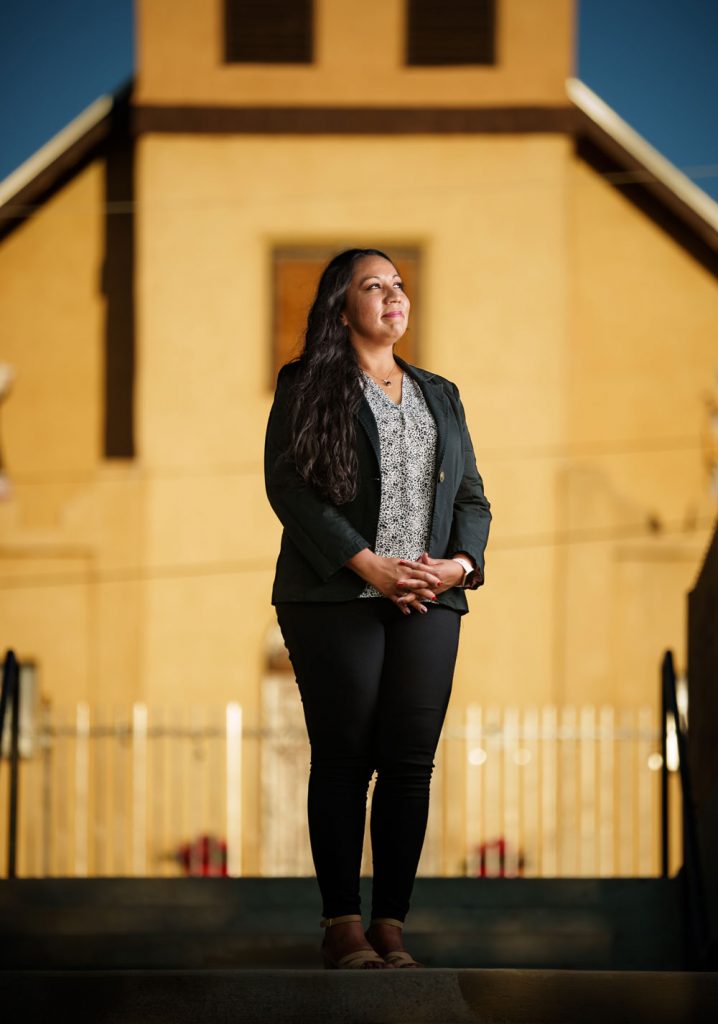
In 1998 Catalina Acosta was about to be the first in her family to graduate high school.
She’d also be the first to attend college. But she needed a letter of recommendation. So, she did what many seniors do and asked her high school counselor.
He said no.
“He asked why I was even thinking about college when people like me are just meant to pop out babies,” Catalina, a Sandia analyst, recalls. “I knew what he meant, insinuating that because I was a Hispanic woman, my only job was to have kids. I told him that I would prove him wrong and get that degree.”
She did.
The more you know
Catalina’s parents came to New Mexico from Chihuahua, Mexico, in the late 1970s. She was born and raised in Albuquerque and lived most of her life across the street from the elementary school where she would attend and later volunteer in high school, working with the school secretary.
Growing up, she watched her parents work hard to support the family. Her mother often worked several jobs, and the work could be physically demanding.
“My dad was a press operator and made boxes. My mom worked mostly in the custodial field and doing laundry, washing linens, ironing, jobs like that,” Catalina said. “My parents wanted more for me; they wanted me to have a career where I could be self-sufficient. They always encouraged me to further my education. They would say, ‘the more you know, the better off you’ll be.’”
She was eager to learn and equally determined to take full advantage of the opportunities she had living in America.
Finding her path
When Catalina was four years old, she started teaching herself English by watching Sesame Street. But Big Bird and Elmo only took her so far.
“When I started elementary school they put me in special education classes,” Catalina said. “There was a language barrier and at that time, I don’t think schools knew what to do with kids like me. I did need some extra help, but the special ed classes were too easy.”
It was a middle school teacher who first recognized Catalina’s potential and started pushing her to think about the future.
“Mrs. Molina-Dodge would ask us, ‘What do you like to do? Where do you see yourself when you think about your career?’” Catalina remembers. “She was the first educator to put that little buzz in my ear.”
And then Catalina discovered the business world.
“I had a typing teacher in high school who encouraged me to join the Business Professionals of America student group,” Catalina said. “And that’s where I found my career path.”
At the time, Sandia offered a scholarship to graduating seniors looking to major in office administration and she was awarded one. Catalina attended a two-year program at Albuquerque’s Technical Vocational Institute, now known as Central New Mexico Community College.
She completed the program and transferred to the University of New Mexico’s Anderson School of Management where she graduated with a degree in business administration.
A fruitful comeback
“I was never focused on the money; I just knew I wanted to get a degree,” Catalina said.
Shortly after graduation, she returned to the high school where her former counselor was still working.
“I went to his office and said, ‘here’s my popped-out baby,’” Catalina said. “And I handed him my degree.”
The degree represented a birth of new opportunities for Catalina.
“I’m grateful that I can show my kids the rewards of pursuing an education. I can give them guidance I didn’t have,” Catalina said. “I want them to know that they can always go farther; they can always do more.”
And do more is something Catalina has done plenty of in her 25 years at Sandia.
In that time, she has worked as an intern, office administrative assistant and administrative support associate, where she has supported various groups including information technology, the Technical Library and research and development. Today she is a governance, risk and compliance analyst in the Labs’ assurance systems and reporting department.
When asked what it means to be a first-generation American, Catalina says, “I’m proud to live the American dream as a Mexican American. I’m here where I can learn about different cultures, enjoy more opportunities and have a better education. I’m here. And I belong.”